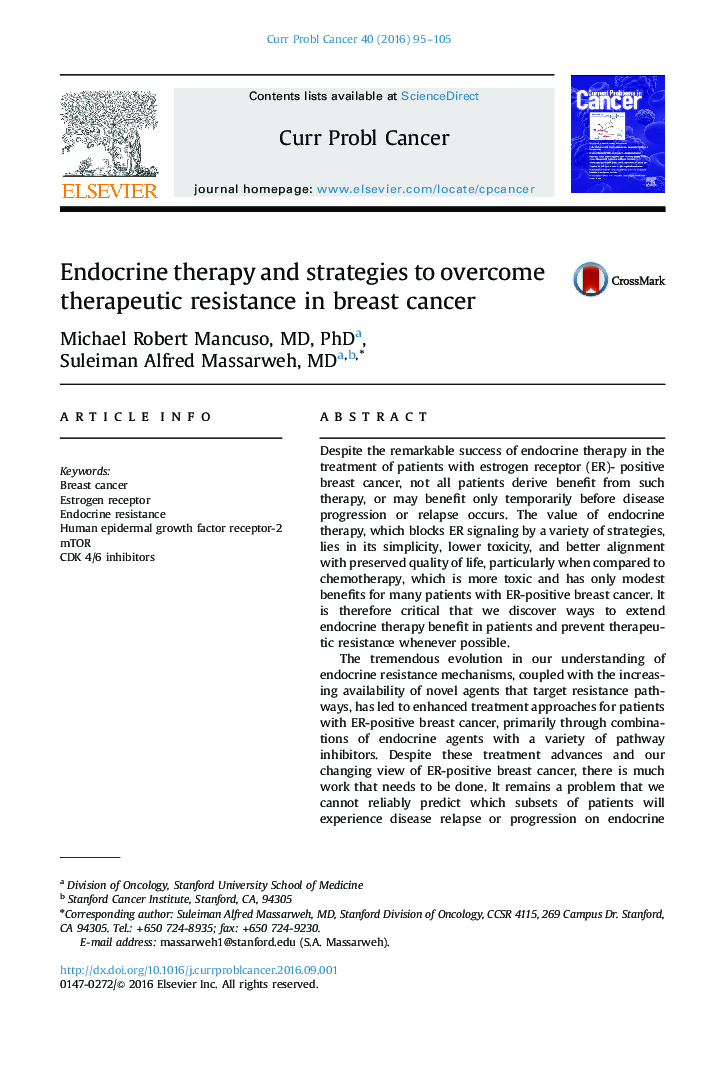| Article ID | Journal | Published Year | Pages | File Type |
|---|---|---|---|---|
| 5664245 | Current Problems in Cancer | 2016 | 11 Pages |
Despite the remarkable success of endocrine therapy in the treatment of patients with estrogen receptor (ER)- positive breast cancer, not all patients derive benefit from such therapy, or may benefit only temporarily before disease progression or relapse occurs. The value of endocrine therapy, which blocks ER signaling by a variety of strategies, lies in its simplicity, lower toxicity, and better alignment with preserved quality of life, particularly when compared to chemotherapy, which is more toxic and has only modest benefits for many patients with ER-positive breast cancer. It is therefore critical that we discover ways to extend endocrine therapy benefit in patients and prevent therapeutic resistance whenever possible.The tremendous evolution in our understanding of endocrine resistance mechanisms, coupled with the increasing availability of novel agents that target resistance pathways, has led to enhanced treatment approaches for patients with ER-positive breast cancer, primarily through combinations of endocrine agents with a variety of pathway inhibitors. Despite these treatment advances and our changing view of ER-positive breast cancer, there is much work that needs to be done. It remains a problem that we cannot reliably predict which subsets of patients will experience disease relapse or progression on endocrine therapy, and as such, combination strategies with targeted agents have largely been used in unselected patients with ER-positive breast cancer, including those who continue to have endocrine-sensitive disease. Patient selection is a significant issue since most of the targeted therapeutics that we use with endocrine therapy are expensive and can be toxic, and we may be inadvertently overtreating patients whose disease can still be controlled with endocrine therapy alone. In this article, we will review current and future strategies in the treatment of ER-positive breast cancer, as well as the evolving role of targeted therapy in the management of endocrine-resistance.
